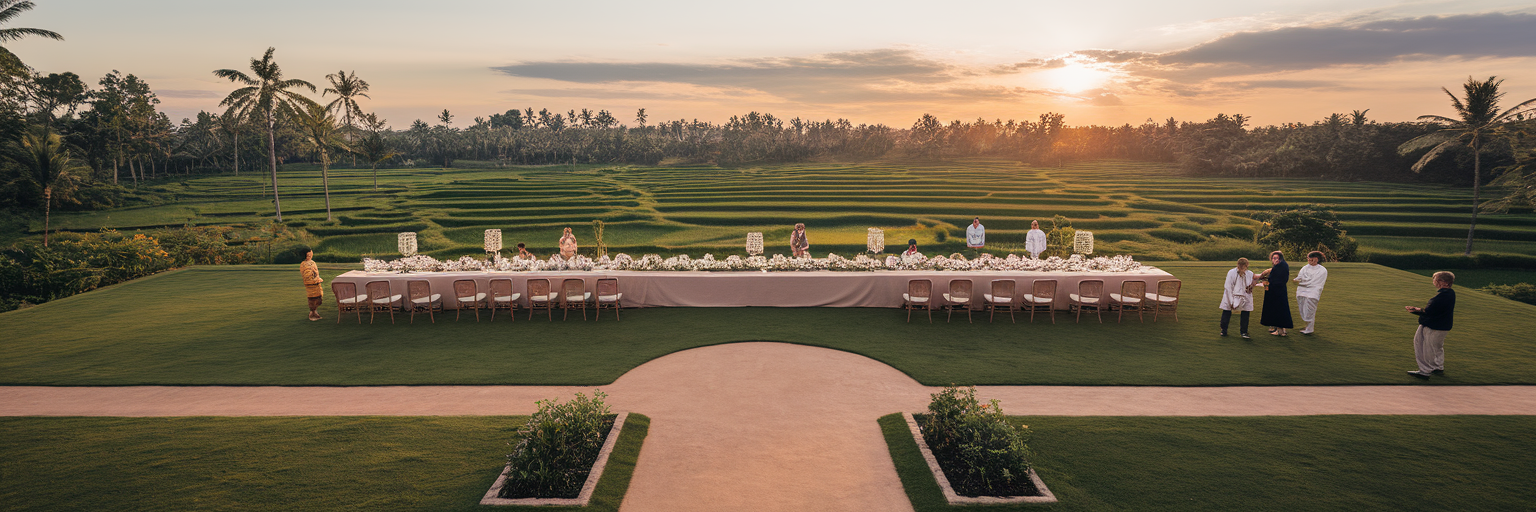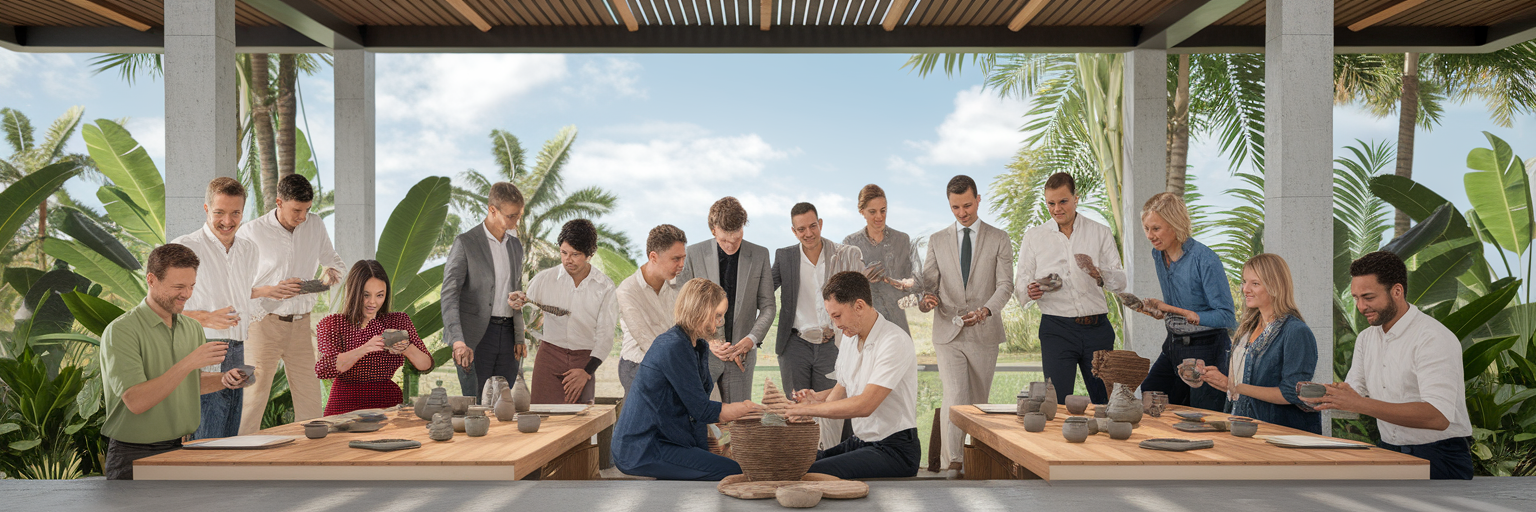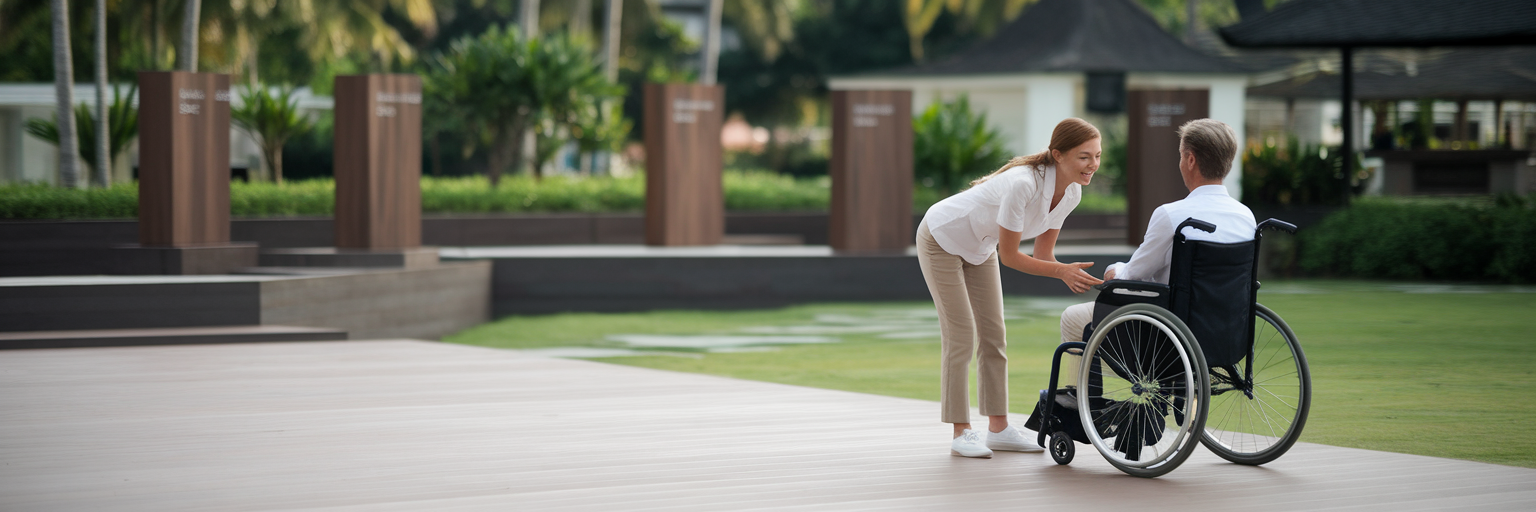Crafting Truly Inclusive Corporate Retreats in Bali
Learn how to create truly welcoming and accessible corporate incentive programs in Bali's beautiful outdoor settings.

Learn how to create truly welcoming and accessible corporate incentive programs in Bali's beautiful outdoor settings.

Incentive trips were once measured by the opulence of the hotel or the exclusivity of the dinner reservation. Today, their success is defined by something far more meaningful: the capacity to build genuine human connection and reflect core company values. The expectation has shifted. Employees and stakeholders now look for purpose in corporate experiences, turning away from generic packages toward authentic engagement. This is where inclusivity becomes a strategic advantage, not a checkbox.
Designing an event that welcomes every participant, regardless of their physical ability, background, or personality, strengthens team cohesion from the inside out. It sends a clear message that everyone belongs. This approach is central to creating impactful incentive travel ideas Asia wide, transforming a simple trip into a powerful statement about a company’s commitment to its people and its principles. A truly memorable corporate retreat is one where every single person feels seen, valued, and able to participate fully.
The foundation of any successful corporate retreat Bali is the physical space. Choosing a venue goes beyond beautiful views; it requires a practical assessment of accessibility to ensure no one is left on the sidelines. The right location can make or break the experience for attendees with diverse mobility needs.
We have all seen stunning cliffside villas in brochures, but have you considered how a person using a wheelchair would get to the viewpoint? True accessibility is woven into the design. Look for venues with continuous, step-free pathways, discreetly integrated ramps, and spacious, properly equipped restrooms. These are not just amenities; they are non-negotiable features for inclusive corporate events Bali. The goal is to find barrier-free outdoor venues where movement is effortless for everyone, allowing the focus to remain on the experience, not the obstacles.
Bali’s landscape is a huge part of its appeal, but it also presents unique challenges. A sunset gathering on a sandy beach sounds idyllic, yet sand is a significant barrier for wheelchairs and other mobility aids. Instead, consider a clifftop garden with firm, level lawns or a resort with paved pathways leading to oceanfront decks. These alternatives offer the same breathtaking views without compromising accessibility. It is about working with the environment to create an experience that is both beautiful and practical.
During a site inspection, whether in person or virtual, asking the right questions is critical. Go beyond the standard queries about capacity. Ask venue managers: "Can you describe your experience hosting groups with diverse accessibility needs?" or "What quiet zones are available for guests who may need sensory relief from the heat and activity?" In Bali's tropical climate, factors like shaded areas and cooling stations are not just comforts but necessities. For a comprehensive framework, resources like the UN Women's Essential Accessibility Checklist offer a detailed guide. Finding the perfect location requires this level of detailed inquiry, and it is where our local expertise makes a tangible difference.

Once you have a barrier-free venue, the next step is to design a program that engages everyone. The traditional model of incentive travel often leans on physically demanding activities like volcano treks or surf lessons, which can inadvertently exclude team members. A modern approach to accessible event planning Bali focuses on shared experiences that cater to a wide spectrum of abilities and interests.
Instead of a one-size-fits-all agenda, consider activities that invite participation on multiple levels. These might include:
This approach is guided by the "challenge by choice" principle. It empowers individuals to participate in a way that feels comfortable and meaningful to them, removing pressure and fostering a more supportive atmosphere. By balancing the itinerary with both high-energy and low-energy options, you ensure the program is rejuvenating, not draining. Crafting bespoke activities tailored to your group ensures that the experience builds bridges rather than creating divisions.
| Factor | Traditional Incentive Activities | Inclusive Universal Activities |
|---|---|---|
| Primary Focus | Physical challenge, competition | Shared experience, collaboration |
| Participation Model | One-size-fits-all (e.g., all must hike) | 'Challenge by choice' with varied engagement |
| Accessibility | Often excludes individuals with mobility or health concerns | Designed for diverse physical and sensory needs |
| Team Impact | Can create division between participants | Fosters empathy and strengthens group cohesion |
| Example | Surfing lessons, ATV tours | Artisan workshops, accessible cooking classes |
This table illustrates the shift from exclusive, high-exertion activities to inclusive models that prioritize universal participation and meaningful connection, aligning with modern corporate values.
Integrating local culture is what transforms a corporate trip into a profound experience. However, there is a fine line between appreciation and appropriation. For sustainable MICE events, the focus must be on authentic, respectful engagement that benefits the local community, moving far beyond superficial performances.
Instead of simply hiring a dance troupe for a 30-minute show, consider collaborating directly with a village cooperative. Imagine starting your retreat with a traditional blessing ceremony led by a community elder or featuring Gamelan musicians who share the history behind their instruments. These interactions create genuine moments of connection and ensure that your investment supports cultural preservation at its source. It is about participating in the culture, not just observing it from a distance.
Balinese cuisine is a feast for the senses, and it should be accessible to everyone. A truly inclusive menu goes beyond a single vegetarian option. Work with caterers to design a spread that celebrates local flavors while clearly labeling all dishes for allergens, dietary restrictions, and preferences like halal or vegan. Think of a live cooking station where chefs prepare fresh sambal, explaining the ingredients as they go. This turns a meal into an interactive and educational experience where everyone feels catered for and safe.
Every element of your event, from the floral arrangements to the attendee gifts, is an opportunity to make a positive impact. We believe in sourcing ethically. Partner with local cooperatives for handwoven textiles, social enterprises for sustainable decor, and small-scale artisans for welcome gifts. This approach ensures the economic benefits of your event are distributed within the community. This commitment to ethical partnerships and community impact is not just good practice; it is a core part of creating an event with a lasting, positive legacy.

The most thoughtfully designed event can fall flat without clear and inclusive communication. This is the invisible architecture that ensures every attendee feels informed, comfortable, and supported from the moment they register until long after they return home. A proactive communication strategy is a cornerstone of professional accessible event planning Bali.
Before the event, use registration forms to discreetly and respectfully ask about accessibility requirements, dietary needs, or any other considerations. Phrasing questions like, "How can we ensure your comfortable participation?" creates a welcoming tone and allows for proper planning. On-site, seamless support is about anticipating needs. Best practices include:
After the event, the communication loop continues. Send out feedback surveys that specifically ask about the inclusivity of the experience. Questions like, "Did you feel the activities were accessible to you?" provide invaluable data for refining future events. This dedication to detail and execution is a clear example of the value of professional event management, turning good intentions into a flawlessly executed reality.
Designing for inclusivity is not a limitation. It is a catalyst for creativity, deeper human connection, and more meaningful corporate experiences. When we remove barriers, we open the door to richer interactions and stronger team bonds. The success of inclusive corporate events in Bali rests on a few core pillars: thoughtful venue selection, activities designed for universal engagement, respectful cultural integration, and proactive, empathetic communication.
As companies increasingly seek to align their actions with their values, this approach is no longer a niche consideration but the new benchmark for excellence. We stand firm in our belief that the most memorable events are those where everyone feels they belong. The future of incentive travel in Southeast Asia will be defined not by extravagance, but by its ability to create a positive and lasting impact on both the people who attend and the places they visit.